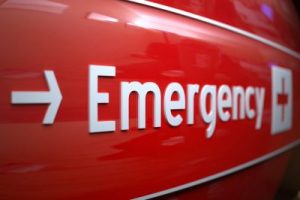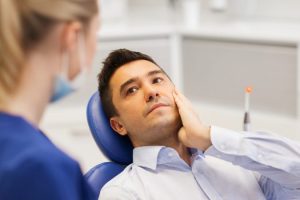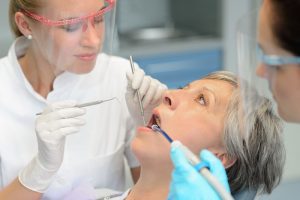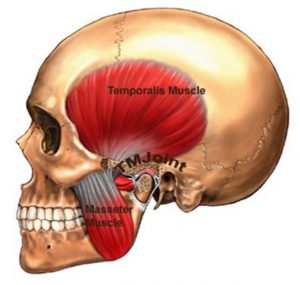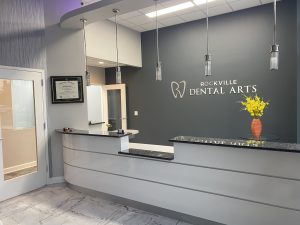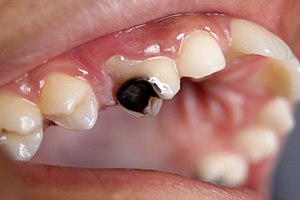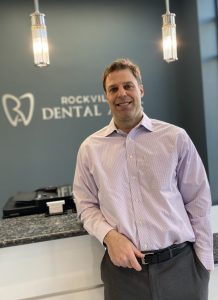Imagine you’re enjoying a weekend getaway when suddenly, you experience a sharp, throbbing pain in your tooth. You’re not sure if it’s a dental emergency, but the pain is unbearable. What do you do?
Where do you go for care? Recognizing dental emergencies and knowing where to find help can make a world of difference in such situations. In this post, you’ll learn how to find “emergency dentist near me” services in your area, identify common dental emergencies, and understand what to expect during an emergency dental visit.
You’ll also discover prevention tips to keep your teeth healthy and avoid dental emergencies. Emergency dentists in Rockville not only address urgent needs but also provide comprehensive dental care, ensuring both immediate relief and long-term oral health.
Introduction to Emergency Dental Care
Emergency dental care is a vital aspect of dentistry that focuses on providing immediate attention and relief for dental emergencies such as a broken tooth, severe tooth pain, or a knocked-out tooth.
At our dental office in Rockville MD, we understand that dental emergencies can be both painful and stressful, which is why our experienced dentists are prepared to handle a wide range of urgent situations. Whether you’re dealing with common dental emergencies like dental injuries, tooth extractions, or require root canal therapy, our team is committed to delivering prompt and effective treatment.
We utilize the latest dental technologies to ensure that every emergency dental visit is as efficient and stress free as possible, always prioritizing patient comfort and minimizing the risk of further complications. When you need emergency dental care, you can trust our dentists to provide compassionate, professional care that restores your oral health and peace of mind.
Key Takeaways
- Online searches, dental insurance provider directories, and urgent care clinics are useful resources for locating emergency dentists in one’s area.
- Recognizing the signs and symptoms of common dental emergencies is essential to prompt care. Severe pain should be taken seriously.
- Prevention tips include using mouthguards while participating in sports activities and maintaining good oral hygiene with daily brushing/flossing & regular checkups.
Finding Emergency Dental Services in Your Area

When a dental emergency strikes, time is of the essence. Finding a qualified professional near you is crucial for receiving proper care and avoiding further complications. Locating a nearby dentist office, such as Rockville Dental, ensures you receive prompt emergency care when you need it most.
We will now delve into three strategies to find emergency dental services in your vicinity: online searches, dental insurance provider directories, and urgent care clinics. Each method has its advantages, and knowing which one to use can help you get the care you need quickly and efficiently.
Online Searches
In today’s digital age, finding an emergency dentist near you is just a few clicks away. Online searches can provide you with a list of emergency dentists in your area, along with their contact information and hours of operation. Searching specifically for Rockville dentists who specialize in emergency dentistry can help ensure you find immediate care for urgent dental issues. Websites such as Google and Yelp offer reviews from other patients, which can help you gauge the quality of care and determine the best provider for your needs. Bear in mind that prompt treatment is key to addressing dental emergencies and averting further complications.
Additionally, online searches can provide valuable information about the services and specialties offered by emergency dentists. Whether you need relief from a toothache or require an emergency tooth extraction, finding a qualified professional who can meet your specific needs is imperative. Don’t hesitate to spend a few minutes researching your options, as this can save you time and discomfort in the long run.
Dental Insurance Provider Directories
Another resource for finding emergency dental services is your dental insurance provider’s directory. These directories offer a comprehensive list of emergency dentists within your network, ensuring coverage for your visit.
By using directories like Delta Dental and Medi-Cal Dental Provider Directory, you can quickly locate an emergency dentist who accepts your insurance, saving you from potential out-of-pocket expenses.
Be aware that insurance may not cover all dental emergencies, so confirming your coverage before proceeding with treatment is crucial. If your insurance does not cover all emergency dental services, many providers also offer financing options to help manage the cost of care.
Urgent Care Clinics
Urgent care clinics are medical facilities equipped to handle a wide range of healthcare needs, including dental emergencies. These clinics may offer emergency dental services or refer you to an emergency dentist in your area. While some urgent care clinics accept walk-ins, it’s best to call ahead and make an appointment if possible. This can help you avoid long wait times and ensure the clinic can accommodate your needs.
Keep in mind that urgent care clinics may have limited dental services, and their primary focus is on providing immediate care for non-life-threatening conditions. In cases where specialized dental care is required, an urgent care clinic may refer you to a dentist or the nearest hospital emergency room for further treatment.
Recognizing Common Dental Emergencies
Recognizing common dental emergencies is vital to ensure prompt care and avert further complications. We will now discuss the three most common types of dental emergencies: severe pain, broken teeth, and knocked-out teeth. Emergency dentists are equipped to handle a wide range of dental issues beyond these common emergencies.
Each of these emergencies requires prompt attention and proper care. By understanding the signs and symptoms of these dental emergencies, you’ll be better prepared to seek the appropriate care when needed.
Severe Pain
Severe dental pain can be a warning sign of a dental emergency, such as a dental abscess or infection. If left untreated, these conditions can lead to more serious dental problems and even impact your overall health. Immediate action is necessary when experiencing severe pain. A painful toothache is a common reason for seeking emergency dental care.
First, rinse your mouth with warm water and use dental floss to remove any food particles lodged between your teeth. If the pain persists, apply a cold compress or an ice pack to the affected area and take over-the-counter pain relievers as needed.
Most importantly, contact your dentist as soon as possible to receive a proper evaluation and treatment.
Broken Teeth
Accidents happen, and broken teeth can result from incidents such as sports injuries or biting on hard objects. Individuals who play sports are at increased risk for dental injuries and should take precautions, such as wearing mouthguards, to prevent chips, fractures, or other dental trauma. In the event of a broken or chipped tooth, seeking emergency dental care becomes crucial to avoid further damage and potential infections.
If you find yourself with a broken tooth, follow these steps:
- Try to save and rinse any broken pieces.
- Rinse your mouth with warm water.
- Apply a piece of gauze to the area for about 10 minutes to stop any bleeding.
- Use a cold compress to reduce pain and swelling.
Visit your dentist as soon as possible for further evaluation and treatment to ensure the best outcome for your dental health.
Knocked-Out Teeth
A knocked-out tooth requires immediate attention to increase the chances of successful reinsertion. If you find yourself in this situation, try to place the tooth back into its socket, holding it in place by the crown with a clean washcloth. If reinsertion is not possible, store the tooth in a container of milk or a cup of water with a pinch of table salt to preserve it.
Contact your dentist immediately to arrange for an emergency appointment. The sooner you can see a dental professional, the better the chances of saving the tooth. In the meantime, avoid touching the tooth’s root and refrain from cleaning it with soap or other chemicals.
What to Expect During an Emergency Dental Visit
When faced with a dental emergency, it’s natural to feel anxious about what to expect during your visit. Our emergency dentist rockville md will guide you through the standard procedure of an emergency dental appointment, which includes examination and evaluation, pain relief, and treatment options. An emergency exam is typically performed to quickly assess your situation and may include necessary X-rays.
Knowing what to expect can put your mind at ease and let you concentrate on receiving the necessary care.
Examination and Evaluation
During an emergency dental visit, the first step is a thorough examination of your mouth to identify the cause of your dental issue. Your dentist may use diagnostic tools such as X-rays to gain a comprehensive view of your dental situation and determine the appropriate course of action.
In addition to a visual inspection, your dentist may review your dental history, inquire about recent dental procedures or medications, and assess your overall oral health. This information helps your dentist develop a personalized care plan tailored to your specific needs and circumstances. Your dentist will then develop a comprehensive treatment plan to address your dental emergency and any underlying issues.
Pain Relief
Relieving pain is often a top priority during an emergency dental visit. Depending on the nature of your dental issue, your dentist may offer various pain relief options, such as nitrous oxide sedation, oral analgesics, or topical anesthetics. All methods have their pros and cons, which your dentist will discuss with you to establish the most suitable approach for your condition.
It’s important to express your pain levels and any apprehensions about pain relief methods during your visit. By working together with your dentist, you can ensure a comfortable and effective treatment experience.
Treatment Options
Once your dentist has identified the cause of your dental emergency, they will discuss your treatment options. Common treatments for dental emergencies include:
- Root canal therapy
- Tooth extraction
- Fillings and bonding
- Replacing a lost filling
- Draining abscesses
Factors such as your dental history, overall health, and the severity of your condition may influence the chosen treatment for not all dental problems.
In some cases, follow-up appointments may be necessary for more extensive care, such as crowns, bridges, or dental implants. Your dentist may also recommend cosmetic dentistry procedures to restore your smile’s appearance. Your dentist will provide you with a detailed explanation of your diagnosis and recommended course of action, ensuring that you have all the information you need to make informed decisions about your dental health.
Many emergency dental providers also offer family dentistry services, ensuring care for patients of all ages during emergencies and routine visits.
Root Canal Therapy for Dental Emergencies
Root canal therapy is one of the most effective emergency dental treatments for saving an infected or severely damaged tooth. When dental emergencies such as intense tooth pain or oral infections occur, root canal therapy can remove the infected pulp, stop the spread of infection, and relieve pain—often in a single visit.
Our dentists use advanced technology to ensure that the procedure is pain free and comfortable, helping you return to normal life quickly. In cases where a tooth cannot be saved, we may recommend tooth extractions as a last resort, always with your oral health as our top priority. We also provide emergency dental care for other dental emergencies, including broken teeth, knocked out teeth, and dental injuries, ensuring that you receive the right treatment to prevent further damage and restore your healthy smile.
Emergency Dental Care Technology
Our dental office is equipped with the latest dental technologies to ensure that every emergency dental visit is efficient, accurate, and comfortable. We use digital X-rays and intraoral cameras to quickly diagnose dental emergencies and develop the most effective treatment plans. These advanced tools allow our dentists to treat dental emergencies with precision, minimizing discomfort and reducing treatment times.
To make your emergency dental care experience as stress free as possible, we offer patient amenities such as heated blankets and refreshments, creating a welcoming environment even during urgent situations. Our commitment to staying at the forefront of dental care technology means you can trust us to provide the highest standard of emergency dental care every time you visit.
Dealing with Dental Emergencies Outside of Business Hours
Dental emergencies don’t always occur during regular business hours. If you find yourself in need of immediate dental care outside of normal operating hours, you have a few options to consider: contacting your dentist, visiting the nearest hospital emergency room, or going to an urgent care center.
Each option comes with its own set of benefits and limitations. In cases of severe dental trauma or infection, seeking immediate medical attention is critical to prevent further complications. Being aware of what to expect can assist you in making the most appropriate decision for your circumstances.
Contacting Your Dentist
If you have a dental emergency outside of regular business hours, your first step should be to contact your dentist. Many dental practices have after-hours emergency contact numbers or on-call dentists who can provide guidance and assistance.
Your dentist may be able to accommodate you for an emergency appointment or recommend another provider if they are unavailable.
Nearest Hospital Emergency Room
If your dentist is unavailable or you don’t have a regular dentist, consider visiting the nearest hospital emergency room. While hospital emergency rooms may not have dental specialists on staff, they can provide temporary pain relief and further guidance on where to seek dental care.
In cases of severe pain or life-threatening dental emergencies, such as a broken jaw, going to the hospital emergency room is highly recommended. An oral infection or an infected tooth can also require urgent hospital care to prevent serious health risks.
Urgent Care Center
Urgent care centers are another option for dealing with dental emergencies outside of business hours. These facilities may offer emergency dental services or referrals to emergency dentists in your area. Like hospital emergency rooms, urgent care centers can provide immediate care for non-life-threatening dental emergencies and may refer you to a dentist or hospital emergency room for more specialized care.
It’s essential to call ahead to confirm the availability of dental services at an urgent care center before visiting.
Dental Emergency Prevention Tips
Preventing dental emergencies is just as important as knowing how to handle them. By taking some simple precautions and maintaining good oral hygiene, you can reduce your risk of experiencing a dental emergency.
Dentist in Rockville MD will now provide two crucial preventative measures: using mouthguards during sports activities and maintaining good oral hygiene.
Mouthguards
Mouthguards are a crucial tool in preventing dental emergencies, especially during sports or other high-impact activities. They protect your teeth and gums from injury by absorbing and distributing the force of a blow to the mouth. There are three main types of mouthguards available: stock mouthguards, boil-and-bite mouthguards, and custom-made mouthguards. Each type comes with its own set of benefits and limitations, so choosing the one that best suits your needs and comfort is vital.
Proper maintenance of your mouthguard is essential for its effectiveness and durability. Here are some tips to follow:
- Clean your mouthguard after each use by rinsing it with cold water.
- Brush it with a toothbrush and toothpaste to remove any debris or bacteria.
- Store it in a cool, dry place when not in use to prevent bacteria growth.
- Replace your mouthguard every one to two years or when it becomes worn or damaged.
By following these maintenance tips, you can ensure that your mouthguard remains clean and effective.
Good Oral Hygiene
Good oral hygiene is the foundation of a healthy smile and a key factor in preventing dental emergencies. Regular brushing, flossing, and dental check-ups help ensure the health of your teeth and gums, reducing the risk of tooth decay and gum disease.
In addition to daily brushing and flossing, make sure to visit your dentist regularly for check-ups and cleanings. These visits allow your dentist to monitor your oral health, identify any potential issues early, and provide preventive care to keep your smile in top shape.
Maintaining good oral hygiene and adhering to your dentist’s advice can minimize your risk of dental emergencies, ensuring a beautiful, healthy smile for many years ahead.
Payment Options for Emergency Dental Care
We know that dental emergencies can happen unexpectedly and may create financial stress. That’s why we offer a variety of flexible payment options and financing plans to make emergency dental care accessible for all our patients. Our dental office accepts most major dental insurance plans, helping you maximize your benefits and minimize out-of-pocket costs.
For patients without insurance, we provide competitive self-pay rates and transparent pricing. We also welcome new patients with special promotions, including complimentary consultations and exams, so you can get the emergency dental care you need without delay. Our team is here to help you navigate your payment options and ensure you receive quality care when you need it most.
Why Choose Our Office for Emergency Dental Services
When you’re facing a dental emergency, you deserve a dental office that puts your needs first. Our experienced dentists and dedicated dental team are committed to providing exceptional emergency dental care in a compassionate, patient-centered environment. We offer same day appointments and emergency dental visits to ensure you receive immediate attention for issues like a knocked out tooth or severe toothache.
Our state-of-the-art facility is equipped with advanced technology, allowing us to deliver efficient, effective treatment while prioritizing your comfort and a stress free experience. Whether you’re a new or returning patient, you can count on our team to provide personalized care and support throughout your emergency dental treatment. Choose our office for your emergency dental needs and experience the difference that expert, caring professionals can make for your dental health.
Summary
Dental emergencies can be disruptive and painful, but knowing how to find emergency dental services, recognize common dental emergencies, and understand what to expect during an emergency dental visit can make a world of difference. By applying the prevention tips discussed in this post, such as using mouthguards and maintaining good oral hygiene, you can reduce your risk of experiencing a dental emergency. Remember, knowledge is power, and being prepared for dental emergencies can help you take control of your oral health and enjoy a lifetime of beautiful smiles. For those in need of emergency dental Rockville md services, our team is ready to assist.
Frequently Asked Questions
Can the ER do anything for tooth pain?
The emergency room can provide immediate pain relief and can help diagnose the cause of your tooth pain, such as by putting you on antibiotics and providing you with pain medication. If you are experiencing severe tooth pain, it is important to seek medical attention as soon as possible.
What will the ER do for a tooth infection?
Your doctor at the ER will attempt to stop your infection and relieve your pain by prescribing antibiotics. To drain the pus, however, a dentist or emergency dental clinic should be consulted.
What is a dental emergency and how do you deal with one?
A dental emergency is any injury that causes uncontrolled bleeding, severe pain or broken facial bones. Treatment needs to be prompt in order to avoid further issues such as infection, tooth mobility and even tooth loss. If you have a dental emergency, contact your dentist immediately for care.
Does Aspen Dental give pain meds?
No, Aspen Dental does not provide pain meds. However, a 24-hour emergency dentist can provide quick relief from severe tooth pain by prescribing pain relief medication.
How can I find emergency dental services near me?
To locate emergency dental services near you, consider searching online, consulting a dental insurance provider directory, or visiting an urgent care clinic.

